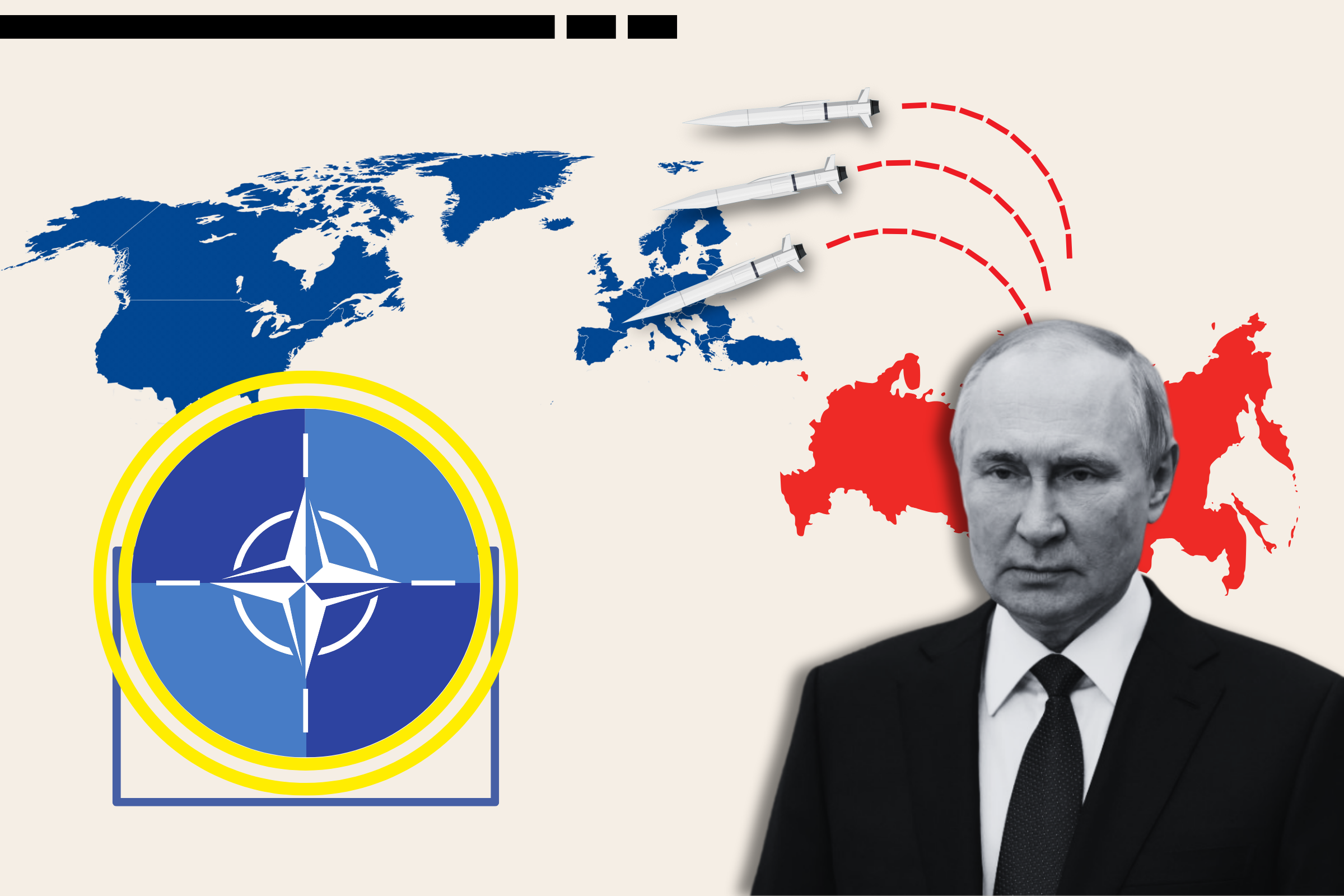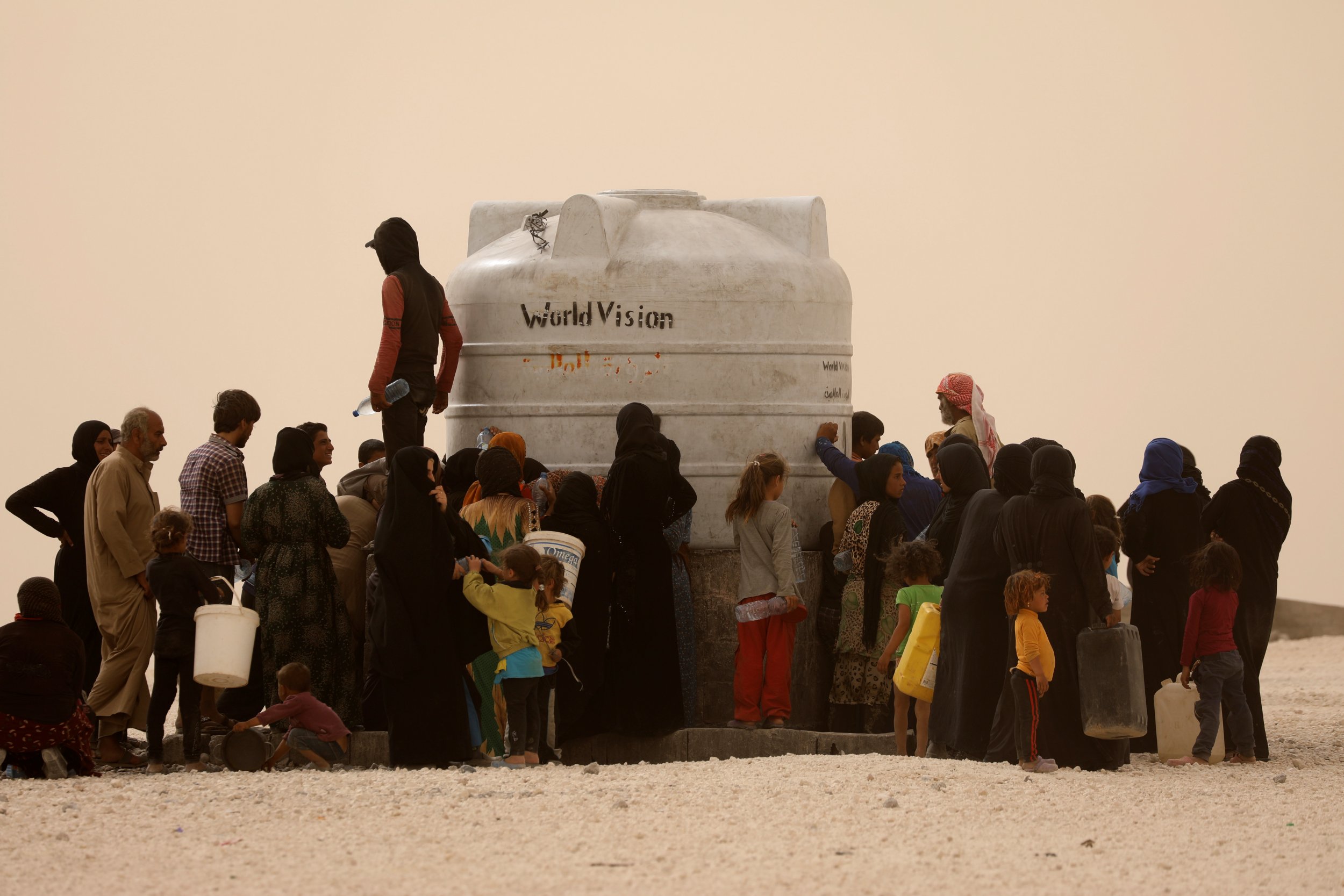
The attack at a concert in Manchester, England, on Monday was the latest tragedy to dominate news headlines and public concern. But after years of repeated atrocities, many people also grow numb and are unable to muster the outrage or shock that we may expect in the face of mass murder and destruction. And while an attack in Europe garners immediate and widespread sympathy, larger atrocities such as the Syrian war seem to disappear.
Why do some atrocities elicit stronger responses than others? What cognitive processes shape our compassion to human tragedy? And is it even important to understand these internal mechanisms?
Paul Slovic has spent several decades researching risk and decision-making, both as a professor of psychology at the University of Oregon and as founder and president of the private research institution Decision Research. Here, Slovic unpacks how and why humans respond to tragedy as we do. He also provides provocative insights about the need for a global response that values all human lives equally.
Why do we respond differently to different tragedies?
Atrocities like the one that just occurred in Manchester occur repeatedly, at various scales and places. We tend to have a very strong response to terrorist attacks in countries that we can identify with in some way, but a very minimal response to state-sponsored terrorism in countries that we don't identify with as strongly. And our response tends to fade quickly.
What have you noticed about our collective response to the current situation in Syria?
Syria is an extreme case. Hundreds of thousands of civilians have been killed in the crossfire of the Syrian War since 2011, with very little interest. A photograph of a little boy drowned on the beach was a wake-up call that generated a flurry of response that lasted roughly one month. Interest soon faded away. A year later, everything was "back to normal" for people in Syria, who were subject to daily bombings by the Assad government.
A few weeks ago we learned about chemical weapon attacks taking place in Syria. When President Trump saw the images from that attack, he responded with a missile strike on an airbase, a reaction that stemmed from a collective outrage about innocent children being killed this way. But soon after, Assad was dropping barrel bombs on Syrians, which he has been doing regularly, without any special attention paid to that horror.
We all feel vulnerable to terrorism. The knowledge that there are people who are willing to kill themselves in order to kill innocent people, particularly young people like those at the Ariana Grande concert in Manchester, disturbs us deeply. But other brutality that should disturb us just as much doesn't get attention.
How do you explain the varied response?
One reason for the lack of attention is the sense of futility. If you can't do anything about it, why torture yourself with these images and thoughts of the suffering? It's rational to turn your attention away from that and essentially forget about it.
This tremendous unevenness is in the background of our responses to these ongoing tragedies. It's understandable that we react more strongly to an attack in Britain than to one in Syria, but the discrepancy is shocking in its own right.
How much does our ability to identify with the victims influence our response?
That ability definitely plays a significant role. Why did that photograph of the child on the beach stand out among tens of thousands of images of tragic events in Syria? That picture wasn't the first, and many others are just as vivid and shocking, but didn't garner the same attention. The boy on the beach was dressed in Western style, his skin was somewhat pale, and we couldn't see his face.
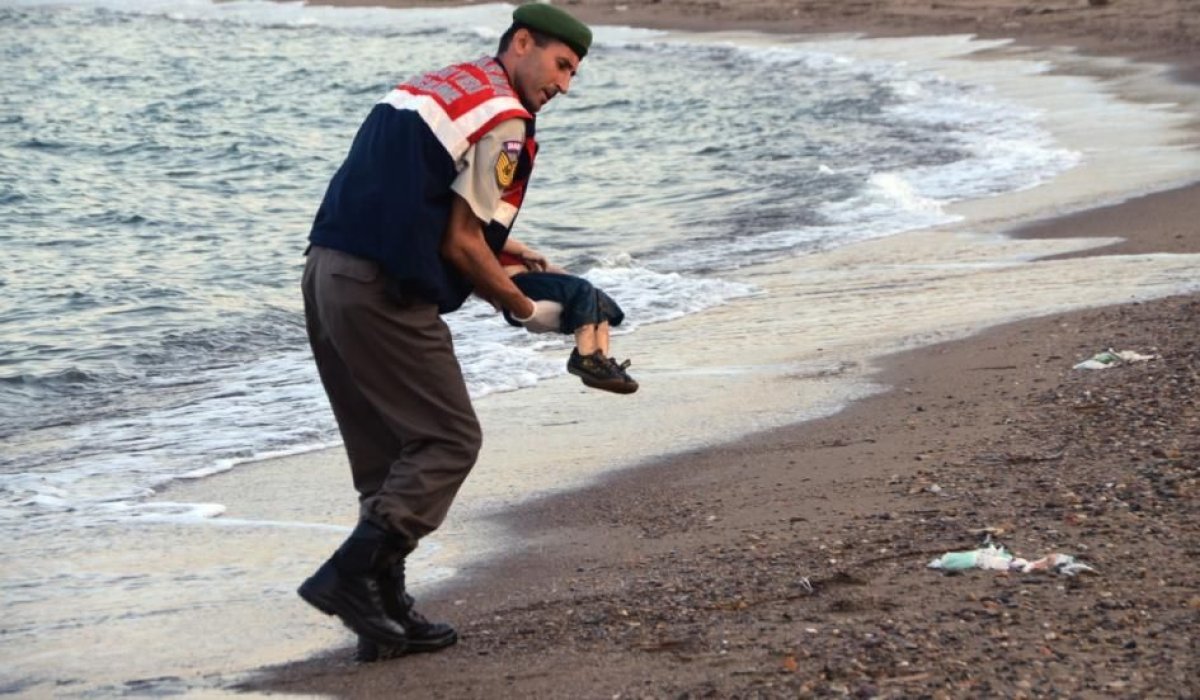
Why did it matter that we couldn't see his face?
We've done studies showing that seeing the face of a victim provides a stronger connection than numbers. Individual identities motivate us, a phenomenon known as the singularity effect.
However, seeing the face could also have the opposite effect. A close-up could enable a person to conclude that the victim is different, that he or she is "not one of us." Assessments like that allow us to distance ourselves. The young child on the beach looked like one of our children, and we couldn't see his face clearly enough to relegate him as someone "other."
A few other photographs have reawakened our concern.
We have selective attention and become numb to repeated imagery unless there is something special or unusual. The photograph of a blank-eyed child covered with dust and blood shocked us into awareness. But that awareness had a shorter lifespan than the prior image.
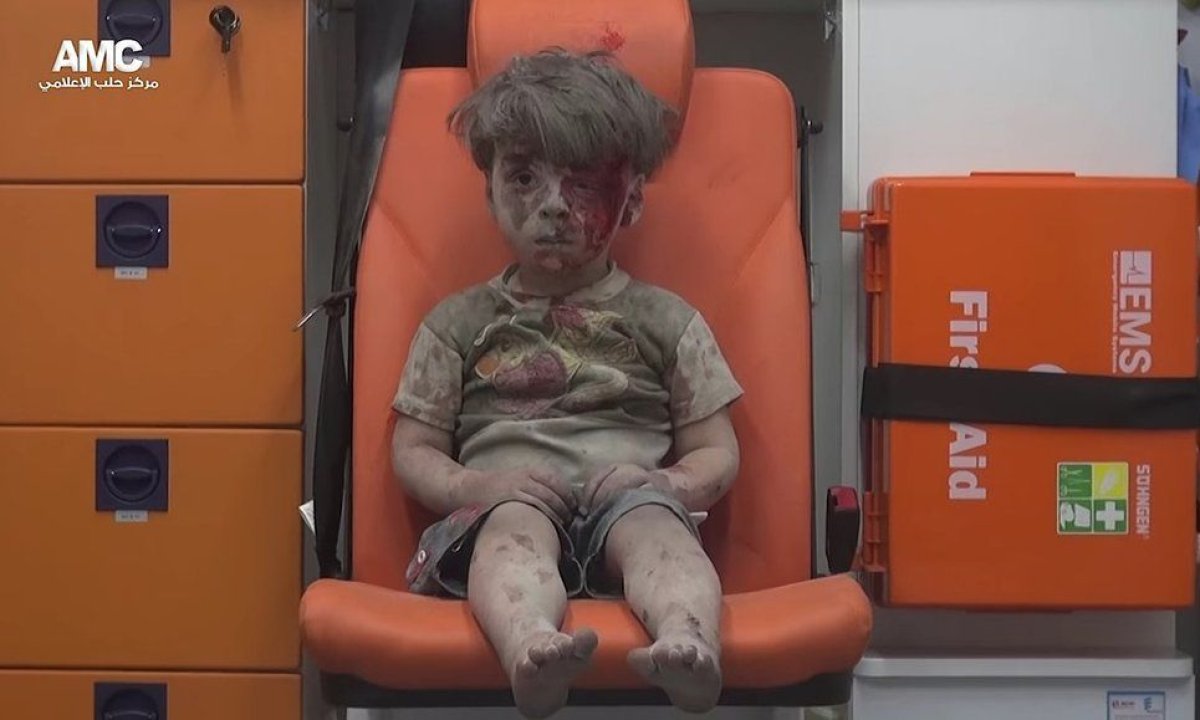
What factors determine our ability to feel compassion?
One way to think about this process is through a concept we call " the arithmetic of compassion." Understanding the arithmetic guiding compassion requires first knowing that we process information in two ways: quickly and slowly, as Daniel Kahnemann writes about in his book, Thinking Fast and Slow .
The fast system is based on very quick, intuitive feelings that arise when see or hear something. Our sensory system brings information to our attention and that awareness leads to feelings. By contrast, our slow-thinking system carefully considers a problem with a deliberate analysis that may lead to feelings but only after significant cognitive effort.
As Kahnemann points out, the human mind is lazy. The feeling system is easy to rely on and is our default mode of thinking. But the fast system makes mistakes when it comes to arithmetic. It can't count. It responds to images and people right in front of our faces, things we are experiencing immediately and directly, not symbols and numbers. Thus our feelings are incapable of responding rationally to large-scale problems like human atrocities.
What are the components of the arithmetic of compassion?
First we have to understand why we become numb. The concern we have for an individual diminishes against the backdrop of a larger tragedy. A person might risk his or her life to save one single victim if possible. But when a circumstance threatens 85 people, the fast system doesn't react differently to 85 deaths versus one death. Those lives lose their value when the atrocity is more massive.
Our research found that we begin to lose empathy when just two people are affected. We can't concentrate our attention as carefully on two people as we can on one, so we don't generate the same sympathy for two victims as we do for one. If we start losing empathy at just two victims, then no wonder we have trouble mustering a response when the victims number in the thousands, as they were in Syria and also in Darfur.
But our response to terrorist attacks doesn't follow that pattern.
Terrorism is an exception to this rule. We respond because we feel directly threatened by terrorism. We consider these acts to affect us, and we are aware of how we have transformed our society and how much money we've spent to prevent attacks. In the risk research we've conducted during the past 40 years, we refer to this response as a "dread hazard." Certain events evoke feelings of dread and we respond very vigorously when a potential hazard evokes dread, such as nuclear technologies and toxic chemicals. Today, terrorism is the leading example of a dread hazard.
What else diminishes compassion?
Another factor in the equation is a false sense of inefficacy. Our feelings are deceived into thinking that our help doesn't matter.
We conducted an experiment in which a group of people were given the opportunity to donate to a young girl representative of starving children. The participants saw her name, her face and her age, and then decided whether or not to donate. In a second group, a photograph of the same child is accompanied by statistics of starvation in several African countries. The number of donations made in that group were half of what they were among the photo-only group. The difference is that in the second group, the starving child is seen as one of millions, so helping her doesn't feel as good. We call this a false sense of non-efficacy, or pseudo-nonefficacy. It's an illusion that you can't help when you actually can.
This illusion is part of our response to the warfare prevalent in many parts of the world and the fact that mass atrocities have occurred since the Holocaust, even after humanity's collective cry that it would never happen again. Incredibly brutal attacks on civilian populations have occurred regularly for the last 50 or 60 years, most of which we've had relatively little reaction to unless they were caused by terrorists.
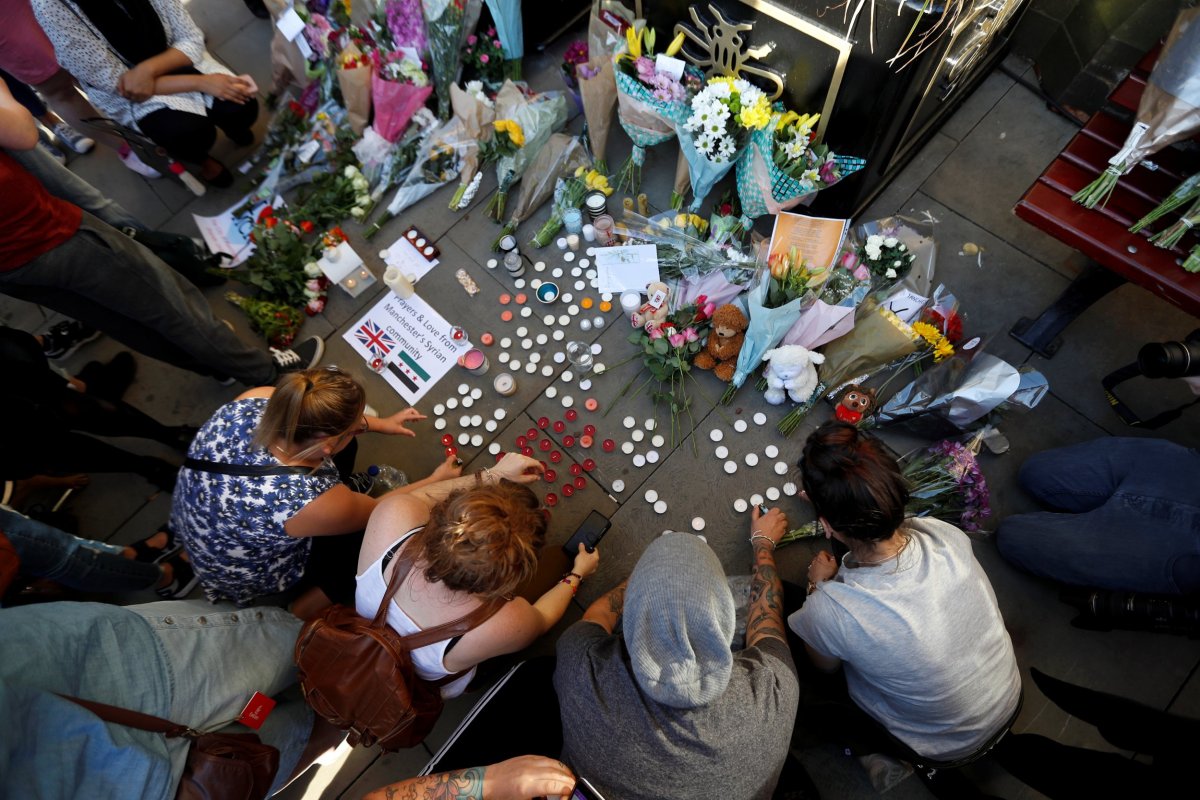
Is there a primitive, survival-driven reason to respond to one victim and not many?
Yes. The fast system is part of the ancient brain. The capacity to do analytical, statistical, mathematical "slow thinking" is a relatively recent development in the human brain. The fast-thinking areas of the brain were essential for survival and developed in a world centered around protecting you and your family within your immediate surroundings. A family wasn't worrying about events transpiring on the other side of the world.
The fast system is also known as the experiential system because it is rooted in our direct experiences. Once upon a time we learned from experience that water in a stream made us sick and then we stopped drinking it; we wouldn't take a sample to a toxicologist. Today we have toxicology to analyze substances in water and how they affect our health.
Why is the fast system more conducive to survival?
The feeling system has no gatekeeper. It allows nonrelevant information to blend with relevant information and concern. From an evolutionary perspective, that feature makes sense. The need to act fast in response to a noise, for example, doesn't leave time for us to analyze what the noise might be from. If the noise sounds ominous, you flee quickly and don't worry about whether your fears are correct.
Why doesn't that fast system work as well in the context of responding to global tragedies?
In the modern world, this porous system lets in information that influences our feelings to the point of deception. Here, the slow system is essential because it lets us evaluate information more critically.
The fast system is powerless against fake news, for example. Reports that are false can still play on our feeling system, and we don't have a solid gatekeeper unless we put the effort into vetting and critiquing those feelings.
Can that response be changed?
Yes, and doing so would begin with awareness of how the human mind works and sometimes deceives us. We have to educate ourselves and create mechanisms that force us to think more carefully about what we value in life and how those values should shape our behaviors. What is our moral obligation to individuals at risk when there is more than one, and when the distress is further away geographically or culturally?
Is it possible to change the response to tragedies on a larger scale, say among an entire nation?
To do that, we would need to create legal mechanisms that facilitate considerations about our obligations to protect all human lives, not only those right in front of us.
When President Trump launched missiles in response to a chemical attack, he was declaring that the people killed by the chemical attacks had value. But the barrel bombing elicited no response. That incoherence troubles me deeply. We need mechanisms that enable governments to develop policies that respect human and also non-human life that are based on slow and careful thinking, not only on impulsive reactions.
The Geneva Convention was supposed to prevent atrocities like those we see in Syria but it hasn't worked. The United Nations was supposed to be an institution dedicated to thinking carefully about these atrocities, but it doesn't work for a variety of reasons, including the fact that five permanent members of the Security Council can veto action by the U.N. Russia has vetoed eight resolutions on Syria, most recently a response to the chemical attack. The U.N. is held hostage by the way it was designed.
But changing this state of affairs, whether in a person or for an entire country, starts with awareness, and I think we are not fully aware of how our minds work. We recognize the numbing we experience after tragedies. But slow thinking enables us to grasp the numbers, and we need more of that.
Uncommon Knowledge
Newsweek is committed to challenging conventional wisdom and finding connections in the search for common ground.
Newsweek is committed to challenging conventional wisdom and finding connections in the search for common ground.
About the writer
Jessica Wapner is the science editor for Newsweek. She works with a talented team of journalists who tackle the full spectrum ... Read more
To read how Newsweek uses AI as a newsroom tool, Click here.



